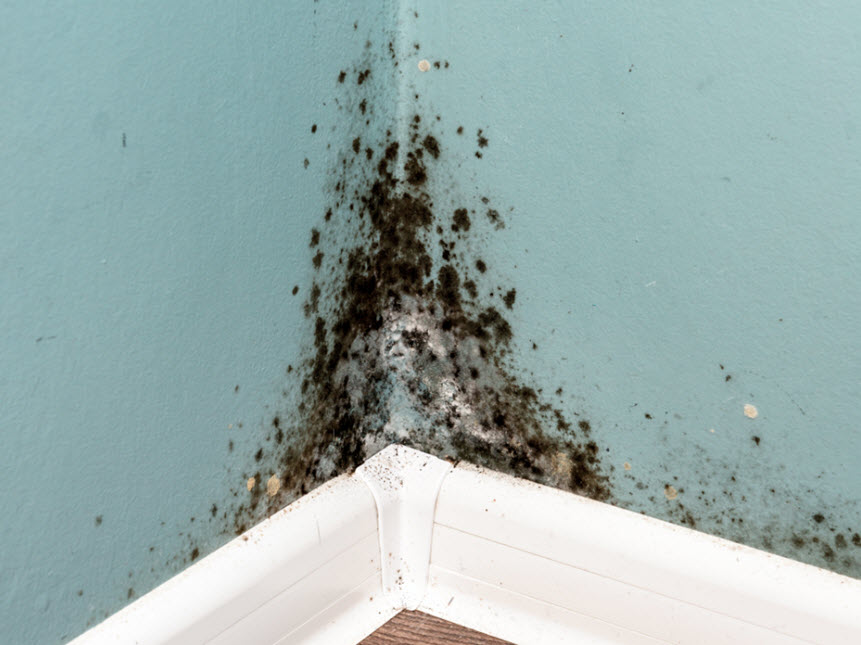What Should Renters Do in Mold Exposure Cases
December 12, 2023 | Personal injury
Finding a home to rent that meets your needs and fits your budget isn’t easy. The rental market is quite competitive. It’s therefore a relief for many tenants when they get exactly what they want or need or something close. However, the discovery of mold in your rental home can quickly turn your bliss into a nightmare. Many tenants wonder what they should do when they discover mold in their homes. Below we take a closer look at the challenges tenants face and what you should do when you discover mold in your space.
Common Challenges for Renters in Mold Infested Homes
Mold is a type of fungus. It thrives in environments that are dark and humid. Mold grows on organic matter which it feeds on for example, wood, items of clothing, upholstery and other porous surfaces. Mold can damage property. In addition, exposure to mold spores can result in a myriad of health issues including respiratory problems.
Landlords are required by law to provide their tenants with a reasonably safe and habitable environment. This includes addressing mold infestations promptly. However, not all landlords fulfill their legal duties. This may be due to lack of awareness or negligence. Renters may therefore be faced by various challenges when dealing with mold infestations. Some of these challenges include:
- Lack of timely action
Prompt action is necessary when dealing with mold problems. Mold problems are time-sensitive. If the mold problem is not dealt with promptly, it will escalate and result in even more damage to the property and greater exposure to mold spores. Tenants may suffer even more serious health issues as a result. Renters often face challenges when trying to get their landlords to take prompt actions. Landlords may take action a long time after the first report when the mold infestation has become widespread and more established within the property.
- Limited knowledge or awareness
Many renters are not aware of their rights as tenants. Some are also unaware of the health risks associated with exposure to mold. Lack of knowledge may result in delayed identification of the infestation or delayed reporting. Mold will thrive and increase health risks to the tenants.
- Ineffective communication with landlords
Even when tenants are aware of the mold infestation and know that they ought to report it to their landlord, they may find it challenging to communicate the problem to their landlord. For example, they may report the matter but find that their landlord does not respond or tries to downplay the severity of the issue. This may lead to delays in remediation and thus increase the tenant’s exposure to mold spores.
- Fear of retaliation
Many tenants choose not to report mold problems because they fear that their landlord will retaliate. These fears may stem from the tenant’s concern about the landlord taking actions such as raising the rent or refusing to renew their tenancy contract. They therefore allow the problem to persist and worsen.
- Inadequate remediation actions
There are cases where landlords take action to resolve the mold problem. However, they may opt for quick fixes such as painting over the affected areas instead of taking thorough remediation actions. These quick or superficial fixes are inadequate when dealing with a mold infestation. The mold problems are likely to recur, compromising tenant health and well-being.
- Financial burden
Tenants also face the challenge of dealing with the financial burdens associated with mold remediation. For example, tenants may have to replace property damaged by mold or cater for the expense of temporary accommodation during the remediation period.
Seek Legal Assistance
If you’re a tenant facing a mold problem, it is in your best interests to seek the guidance and representation of an experienced attorney. An experienced attorney can help you by:
- Providing legal guidance on tenant rights
An attorney specializing in landlord-tenant disputes has a deep understanding of the legal framework surrounding tenant rights. They can guide you and help you determine your rights in your situation.
- Proving negligence
An experienced attorney can assist you with gathering evidence to prove negligence on the part of your landlord. For example, they will document communication with the landlord, take photographs of affected areas, review medical records as well as engage experts to build a strong claim.
- Representing you and advocating on your behalf
Your attorney will represent you in negotiating for compensation on your behalf. They will represent you in court and ensure that your rights are protected. They will fight to recover compensation on your behalf.
Dealing with mold problems can turn out to be a complex legal issue. It helps to have the guidance and representation of an experienced attorney during the process. Contact our law firm to schedule free consultation with an experienced attorney and learn about your rights and options.

renters-and-black-mold-lawsuits

